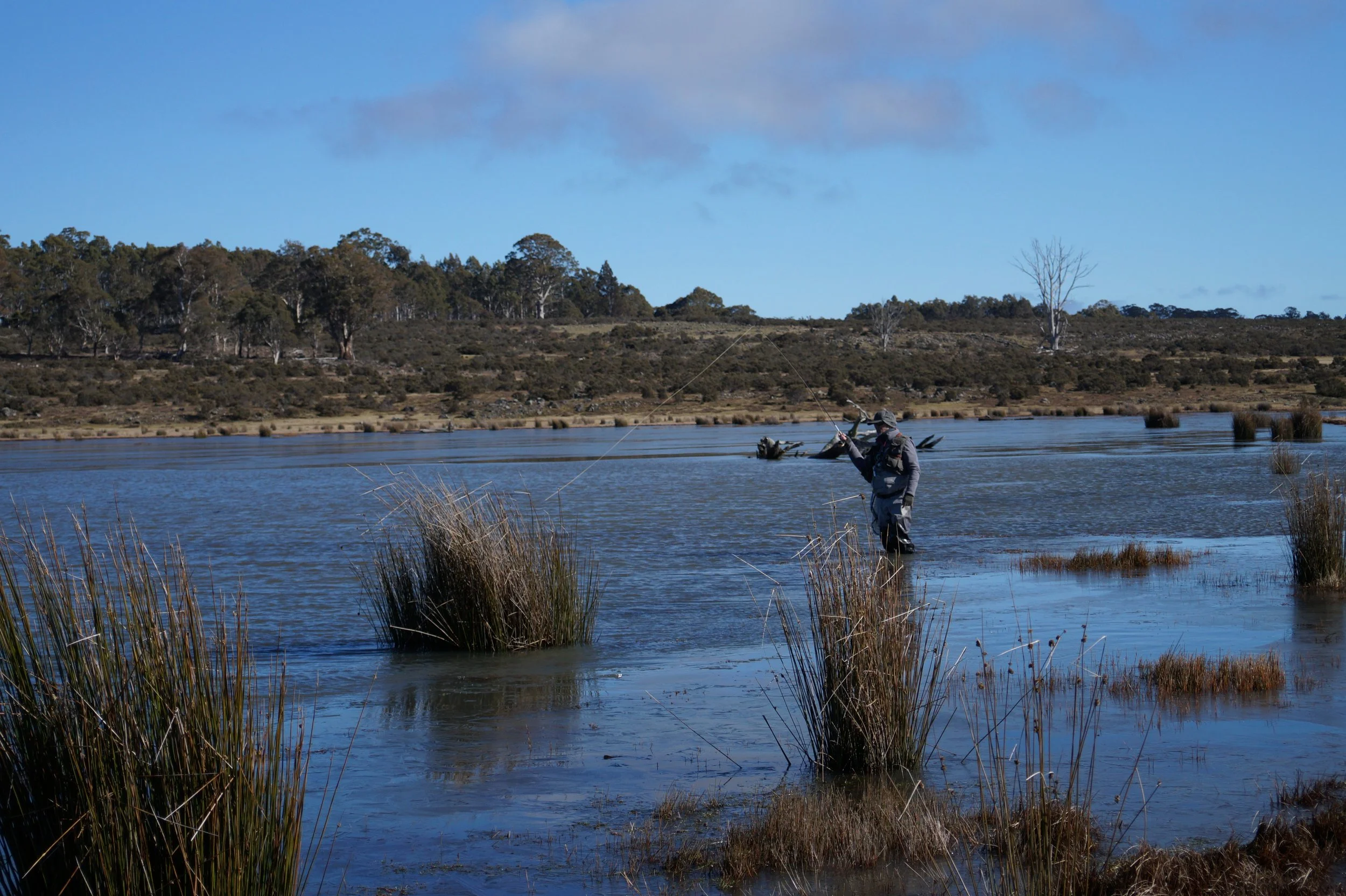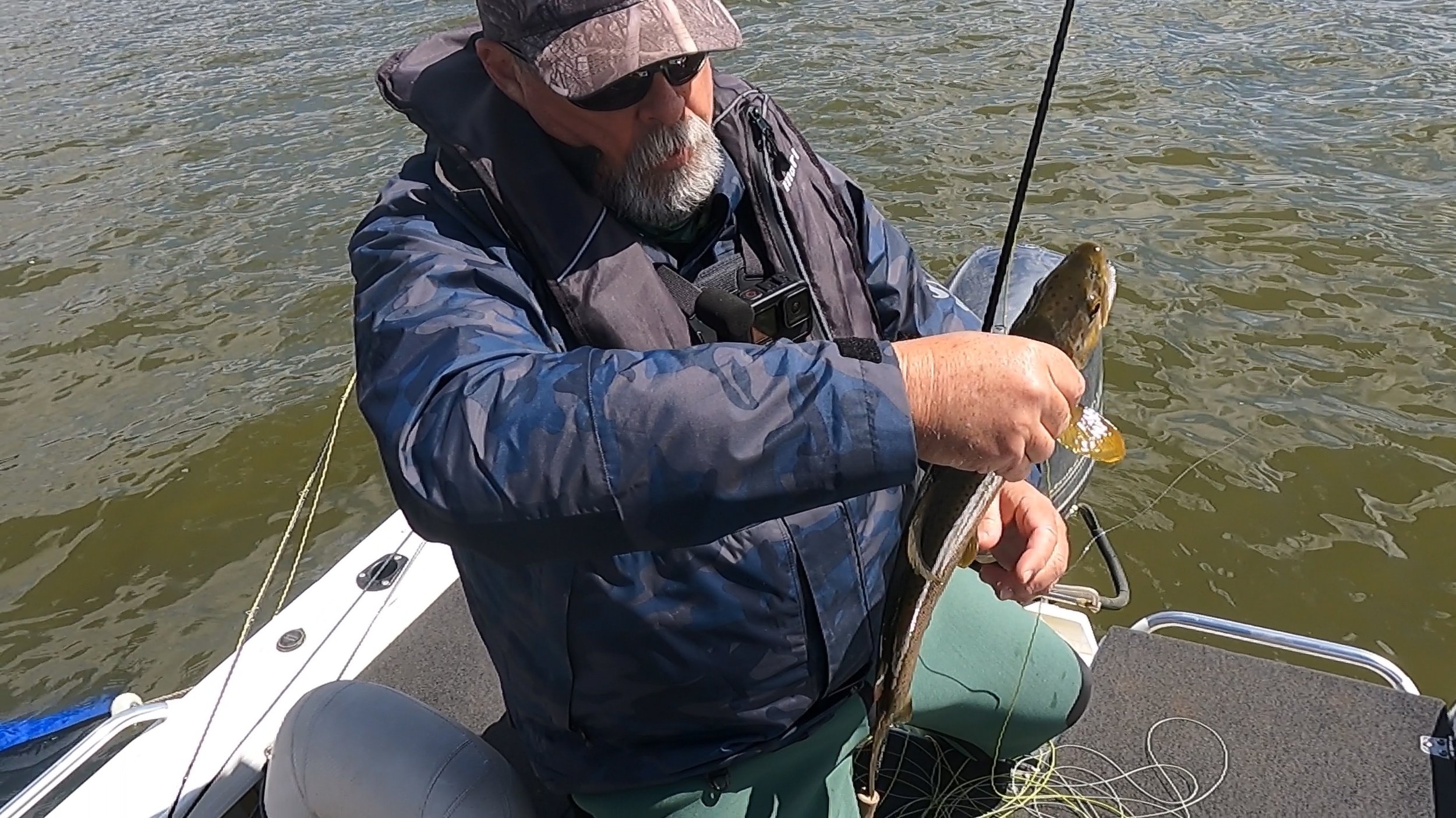2022-23 End of Season Wrap
The 2022-23 Season with the Highland Fly
Trout fishing in Tasmania is a seasonal exercise. It’s seasonal on the basis of good fisheries management. And it’s seasonal because it can be pretty miserable in the Central Highlands in the middle of winter.
But although “seasonal” suggests that the trout season offers a pattern of reliability or predictability, visitors to Tasmania quickly learn that is not the case. With so many factors impacting on our fishery, a good trout fishing experience is as much reliant on currency of knowledge as it is on seasonal expectations.
Who, for example, would have factored into their consideration a spring rain downfall that brought more than 400 mm of rain in a single day to the Central Highlands. A perfect example of unpredictability, but also of opportunities far more likely to be realised with the help of current local knowledge. The flooding rain gave rise to a flurry of unfishable rivers, road closures, of overflowing dams and of conventional spring expectations going out the window.
Despite those shocks, though, there were great fishing opportunities. Fish happily feeding in flooded lake and river margins on insects and bugs caught out by the water level rises became the target of some great stalking. And for visitors lucky enough to be visiting at the time, experiences like targeting hungry tailing fish were on offer from those who knew what was going on.
The season also reminded us of the fickle nature of individual waters. To the Tasmanian fly fisher, one of the premier highland lakes has been Arthurs Lake. However, since a massive water draw down in 2015 when our energy management systems went awry, the “premier’ nature of the fishery has been compromised. Now, every year we wait in anticipation of the continued improvement of the fishery, and this year was no exception. Early season wet fly fishing and frog pattern fishing was great. Then there was the exciting margin fishing associated with the flooding rains (admittedly compromised somewhat by road closures). When it came to the much-awaited mayfly season we still have to admit that the hatches of the past are still not occurring, but there were some very good dry fly reports for the year, especially late in the season when jassid beetles turned up and the Arthurs browns reminded us all just what a delicacy jassids are to a trout.
Little Pine Lagoon similarly helped sustain the “fickle” reputation of our fishery. A flooded Little Pine opened with a blast – huge fish numbers on the opening weekend built a buzz of excitement about the season’s prospects. But, a bit like Arthurs, with the impact of the 2019 bush fires still affecting the Little Pine catchment, the mayfly hatches remain patchy. They were brilliant when they were on, but knowing when they were going to be “on” became the challenge. The lake also built a bit of a reputation in 2022-23 for more smaller fish and fewer bigger fish than we are used to.
It was also a season in which I strayed regularly from the Central Highlands lakes to lakes in the Bronte chain. Bronte, Pine Tier, Bradys, Tungatinah – all waters that, on their day, will produce some fantastic fishing and, at times, offer a respite from the weather challenges that the highlands might be offering.
Throughout the season, my mainstay for The Highland Fly was Herne Lodge. This is a gem of a fishery. It’s a private fishery located in the central highlands on a 5,000 acre sheep farm. It is a lake of around 25 hectares with a population of wild brown trout that constantly remind me of the way the Tasmanian fishery should work. Wet fly fishing early in the season, along with margin fishing with frog patterns. Frustrating early morning midge hatches where a size 18 imitation might sit uneaten amongst masses of naturals, but all of a sudden be sipped by an unlucky trout. There were mayflies from November and orange spinner hatches. Sight fishing in clear water in the shallows- tailing fish in 6 inches of water happy to take a well presented dry fly. Jassid hatches and fish gorging themselves.
I first discovered Herne as a venue for a series of learn to fly fish sessions during the 2019 Covid lockdowns. Those learn to fly fish sessions will be into their 5th season in 23-24 and the venue remains an ideal setting. It has also, however, become a venue that I happily take experienced anglers. People fall in love with Herne and the experiences it offers.
The season has finished, but already plans and bookings for the new season are underway (and there are still a few bookings to complete with intrepid anglers happy to fish out of season on waters that are not subject to closure - particularly private waters like Herne, Twin Lakes and 28 Gates).
Hopefully the 23-24 season will again be full of surprises and changes and, most importantly, happy anglers. If you’re tempted, make sure you get in touch.




